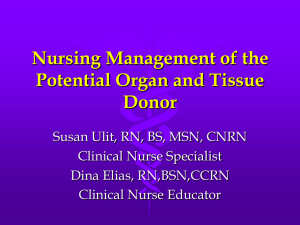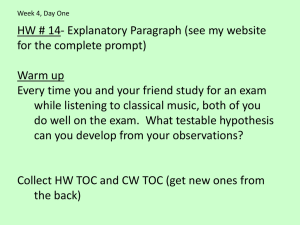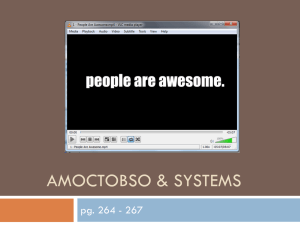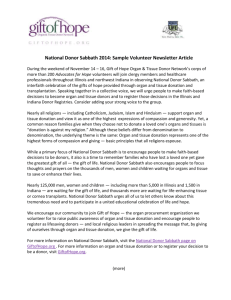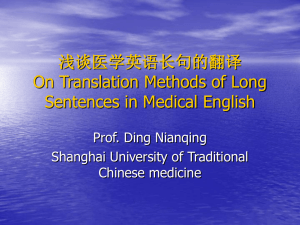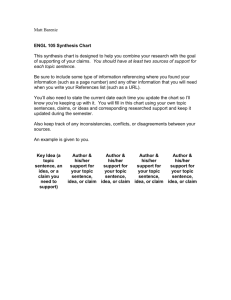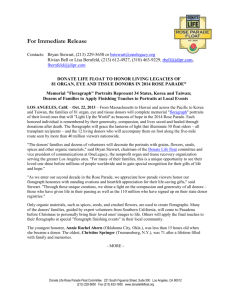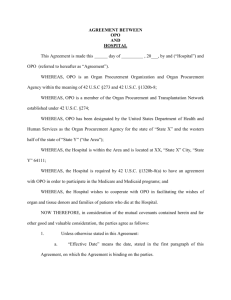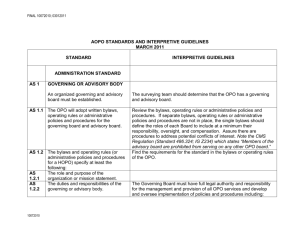Dan Lebovitz, MD
advertisement
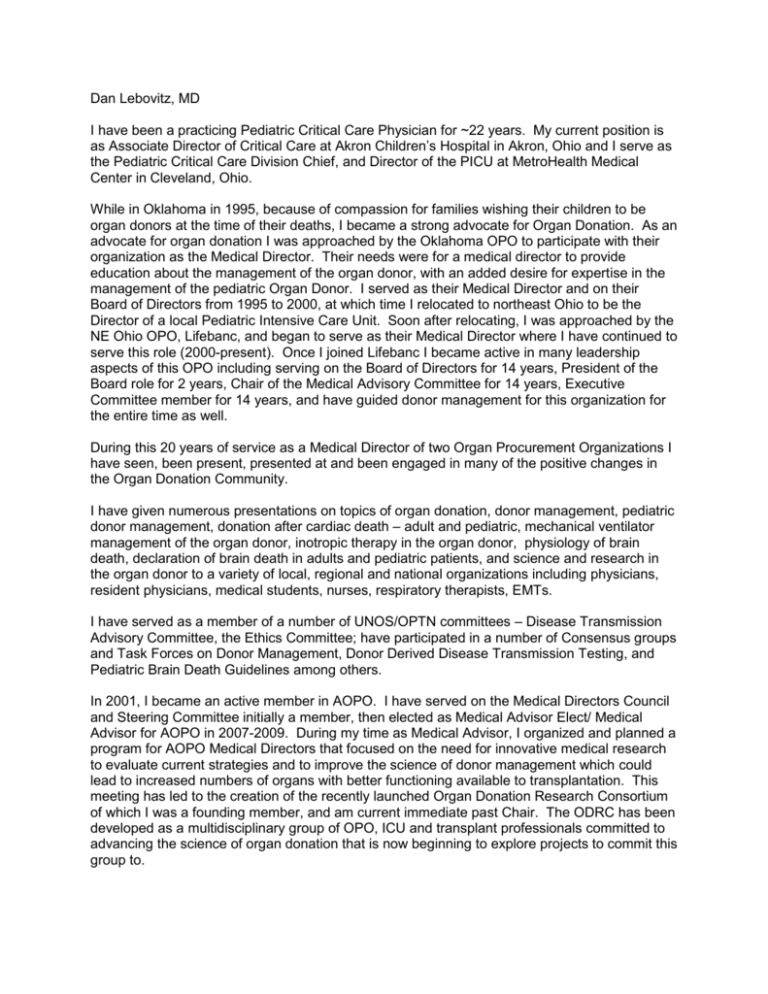
Dan Lebovitz, MD I have been a practicing Pediatric Critical Care Physician for ~22 years. My current position is as Associate Director of Critical Care at Akron Children’s Hospital in Akron, Ohio and I serve as the Pediatric Critical Care Division Chief, and Director of the PICU at MetroHealth Medical Center in Cleveland, Ohio. While in Oklahoma in 1995, because of compassion for families wishing their children to be organ donors at the time of their deaths, I became a strong advocate for Organ Donation. As an advocate for organ donation I was approached by the Oklahoma OPO to participate with their organization as the Medical Director. Their needs were for a medical director to provide education about the management of the organ donor, with an added desire for expertise in the management of the pediatric Organ Donor. I served as their Medical Director and on their Board of Directors from 1995 to 2000, at which time I relocated to northeast Ohio to be the Director of a local Pediatric Intensive Care Unit. Soon after relocating, I was approached by the NE Ohio OPO, Lifebanc, and began to serve as their Medical Director where I have continued to serve this role (2000-present). Once I joined Lifebanc I became active in many leadership aspects of this OPO including serving on the Board of Directors for 14 years, President of the Board role for 2 years, Chair of the Medical Advisory Committee for 14 years, Executive Committee member for 14 years, and have guided donor management for this organization for the entire time as well. During this 20 years of service as a Medical Director of two Organ Procurement Organizations I have seen, been present, presented at and been engaged in many of the positive changes in the Organ Donation Community. I have given numerous presentations on topics of organ donation, donor management, pediatric donor management, donation after cardiac death – adult and pediatric, mechanical ventilator management of the organ donor, inotropic therapy in the organ donor, physiology of brain death, declaration of brain death in adults and pediatric patients, and science and research in the organ donor to a variety of local, regional and national organizations including physicians, resident physicians, medical students, nurses, respiratory therapists, EMTs. I have served as a member of a number of UNOS/OPTN committees – Disease Transmission Advisory Committee, the Ethics Committee; have participated in a number of Consensus groups and Task Forces on Donor Management, Donor Derived Disease Transmission Testing, and Pediatric Brain Death Guidelines among others. In 2001, I became an active member in AOPO. I have served on the Medical Directors Council and Steering Committee initially a member, then elected as Medical Advisor Elect/ Medical Advisor for AOPO in 2007-2009. During my time as Medical Advisor, I organized and planned a program for AOPO Medical Directors that focused on the need for innovative medical research to evaluate current strategies and to improve the science of donor management which could lead to increased numbers of organs with better functioning available to transplantation. This meeting has led to the creation of the recently launched Organ Donation Research Consortium of which I was a founding member, and am current immediate past Chair. The ODRC has been developed as a multidisciplinary group of OPO, ICU and transplant professionals committed to advancing the science of organ donation that is now beginning to explore projects to commit this group to. I have been and remain committed to improving the science of organ donor management as a means to increase the numbers and improve the quality of organs available for transplantation in the US. My strengths have been the successful integration of critical care patient management approaches that are founded in science and applying this to the organ donor management strategies, and working with a variety of groups and bringing them together for the common good of increasing organs available for transplantation. I believe that continuing to save more lives through organ donation requires learning, and sharing of knowledge in this area of medicine along with a necessary advancement of the young science of organ donation to maximize the available gifts of life for those on the waiting list for life saving organs.

